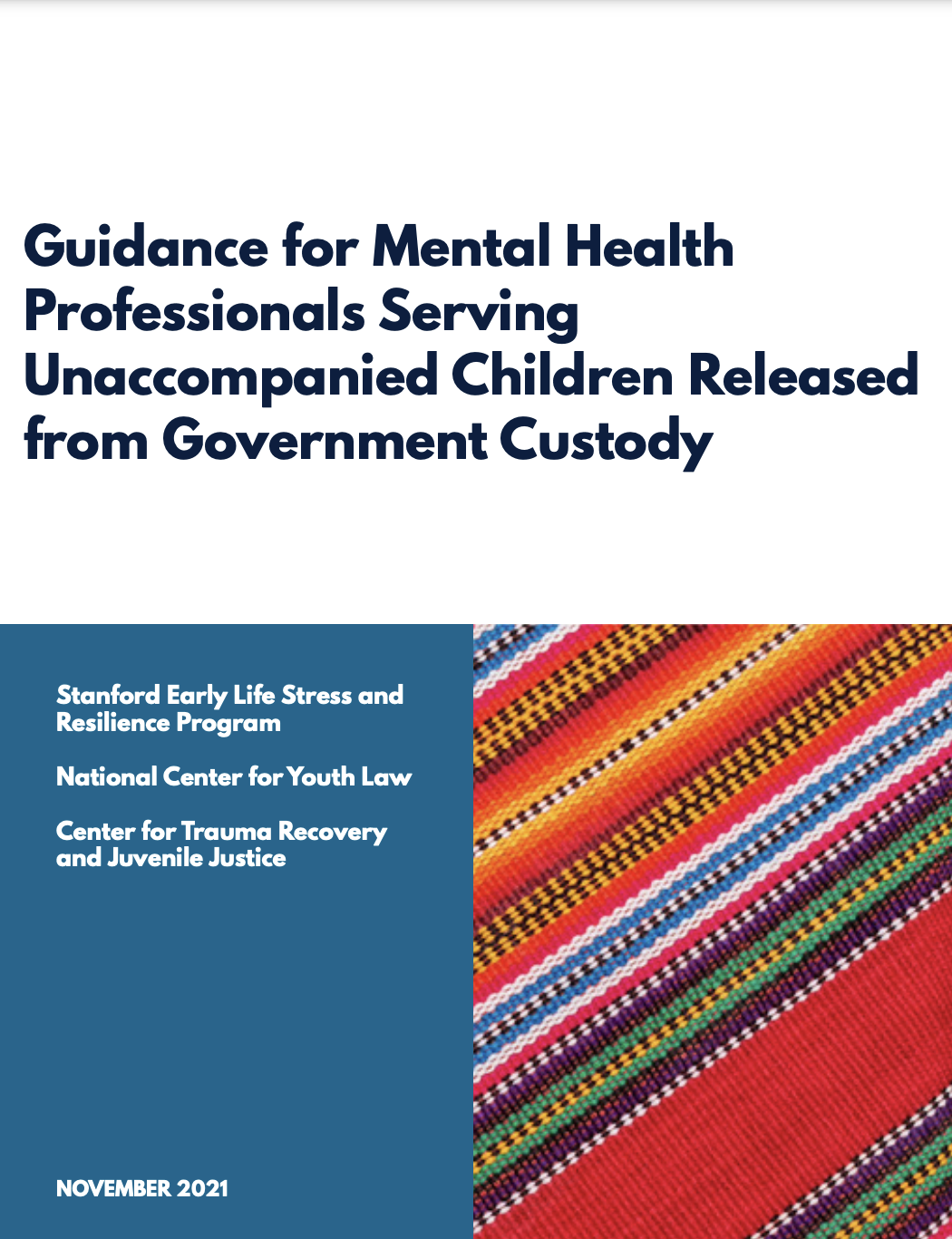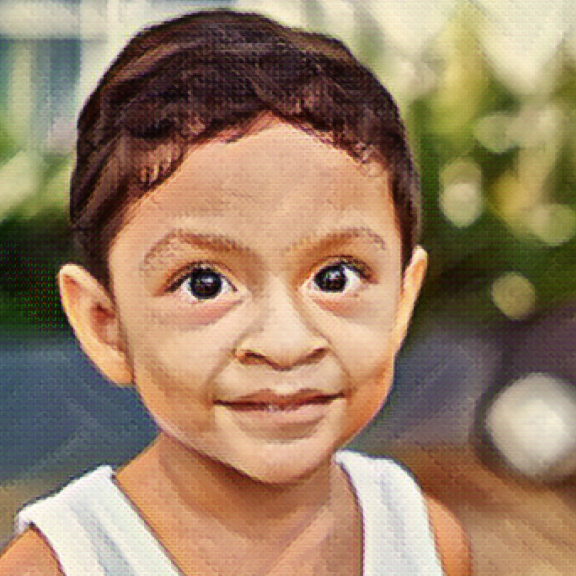Guide Available For Mental Health Professionals Serving Immigrant Youth
Providing effective mental health services to unaccompanied children released from federal immigration custody is both critically important and incredibly challenging. Unaccompanied immigrant children arrive at the border without a parent or legal guardian and face unique challenges and stressors during their journey to the U.S., throughout their detention, and upon their release from custody.
In an effort to help professionals address this challenge responsibly and in a way that centers the needs and experiences of children, the National Center for Youth Law partnered with the Stanford Early Life Stress and Resilience Program and Center for Trauma Recovery and Juvenile Justice to produce a Guide on best practices for meeting the therapeutic needs of this vulnerable population.
 “Guidance for Mental Health Professionals Serving Unaccompanied Children Released From Government Custody” (Guide), published in November 2021, is grounded in the voices and experiences of unaccompanied children. Featured quotes from detained unaccompanied children throughout the Guide come from interviews conducted by NCYL attorneys.
“Guidance for Mental Health Professionals Serving Unaccompanied Children Released From Government Custody” (Guide), published in November 2021, is grounded in the voices and experiences of unaccompanied children. Featured quotes from detained unaccompanied children throughout the Guide come from interviews conducted by NCYL attorneys.
Important resource for mental health professionals
Mental health providers often are the first adults who understand the multi-layered impact that trauma has had on children. However, many mental health providers may not understand the intricacies of the federal immigration detention system and how unaccompanied children experience this system.
Although each child’s experience is distinct, there are commonalities that can help professionals provide trauma-sensitive and culturally responsive care for unaccompanied children who have faced unique dangers, challenges, and losses involved in their journey to the U.S.and their time spent in federal immigration custody.
Without a deeper understanding of who unaccompanied children are, and what traumatic stressors they have experienced, even a seasoned clinician with expertise in child trauma may struggle to effectively provide mental health services to this population.
Among the information included in the Guide:
- An overview of the layers of trauma unaccompanied children may experience throughout their journey – beginning in home country, through their time in federal immigration custody, and upon release into the community;
- An overview of the distinctive traumatic stressors impacting unaccompanied children;
- General and specific characteristics of the type of government custody where unaccompanied children are placed that increase the likelihood of traumatic stress; and
- Priorities for mental health professionals working with unaccompanied children.
Children who arrive at the border without a parent or legal guardian are remarkably resilient, but many have experienced severe psychological and physical trauma that must be recognized and treated accordingly. When professionals who care for these children are prepared to help them recover from the impact of complex trauma, these children can regain the healthy development that trauma may have interrupted and thrive in their communities.
If you are a mental health professional who would like further support in serving immigrant children who were previously detained in federal immigration custody, please contact our team.






